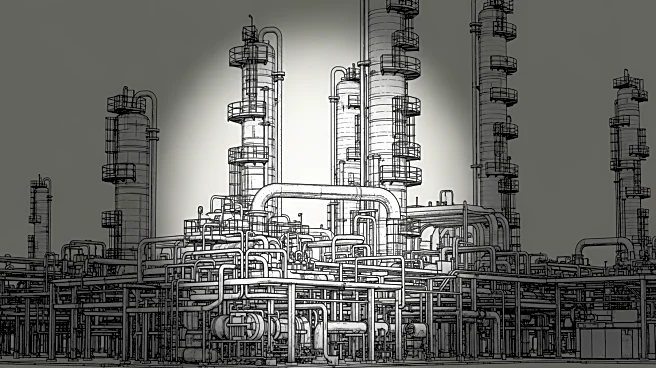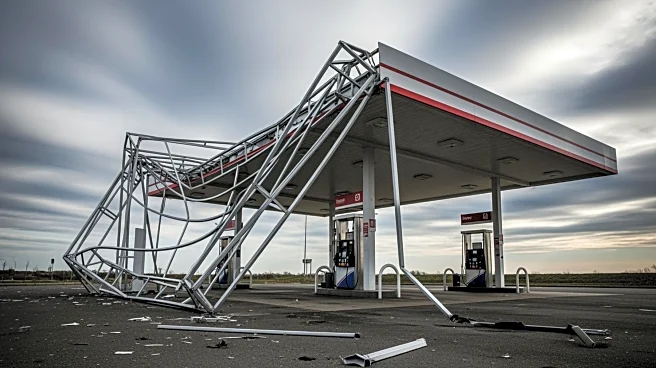What's Happening?
Chevron is conducting an investigation into a significant explosion and fire that occurred at its El Segundo refinery. The incident, which took place last week, has been linked to the Isomax unit, a jet fuel processing section of the refinery. This unit remains closed while other parts of the refinery continue operations. The explosion illuminated the night sky and was heard miles away, but fortunately, no fatalities were reported. However, a few workers sustained minor injuries. Experts suggest that equipment failures, particularly those allowing hot oil and gas to escape, might have contributed to the incident. The South Coast Air Quality Management District and the California Department of Industrial Relations are also investigating potential violations of air quality and safety standards.
Why It's Important?
The explosion at Chevron's El Segundo refinery highlights significant safety and operational concerns within the oil refining industry. Such incidents can have far-reaching implications, including potential regulatory changes and increased scrutiny on refinery operations. The event underscores the importance of robust safety protocols and the need for thorough investigations to prevent future occurrences. The refinery's continued operation, despite the Isomax unit's closure, indicates the economic importance of maintaining fuel production. However, the incident raises questions about the adequacy of current safety measures and the potential impact on local communities and the environment.
What's Next?
Chevron is required to submit a detailed report to the South Coast Air Quality Management District within 30 days, outlining potential causes and equipment failures. The ongoing investigations by various agencies, including the California Department of Industrial Relations, will determine if any state safety standards were violated. The findings could lead to regulatory changes or enforcement actions. Additionally, the U.S. Chemical Safety and Hazard Investigation Board's involvement remains uncertain due to funding and staffing issues, which could affect the thoroughness of the investigation.
Beyond the Headlines
The incident at the El Segundo refinery may prompt a reevaluation of safety practices across the oil refining industry. It highlights the potential risks associated with technological reliance and the need for human oversight in monitoring equipment. The situation also brings attention to the broader implications of industrial accidents on worker safety and environmental health. The outcome of the investigations could influence future policy decisions and industry standards, emphasizing the balance between operational efficiency and safety.









